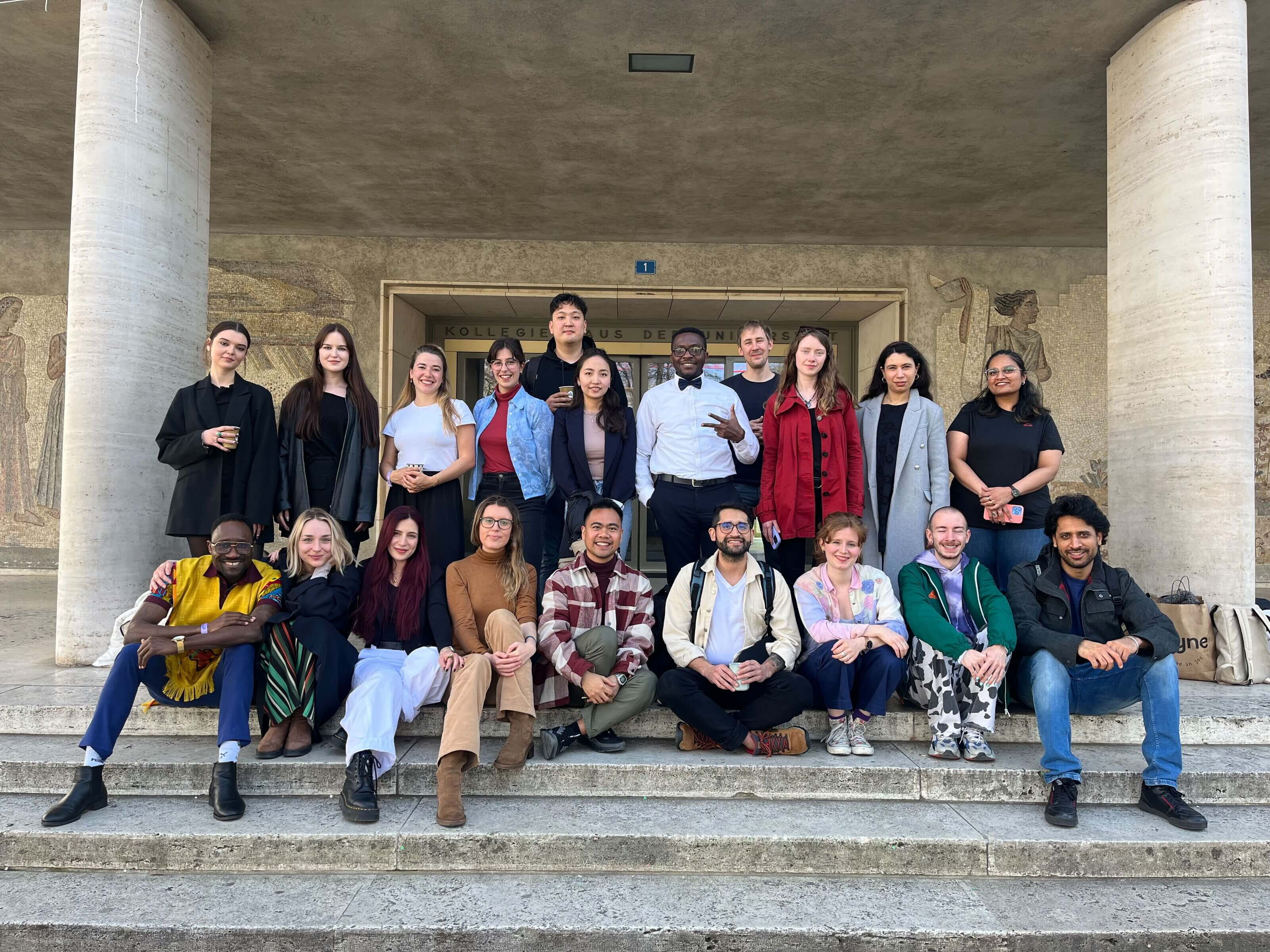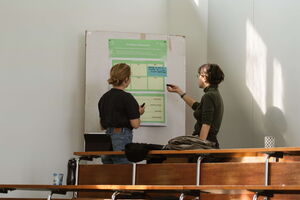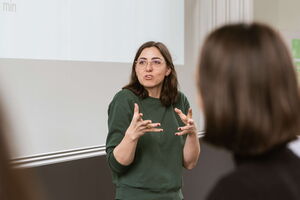Sustainability in a box – How we developed a project for plant-based nutrition in one week

‘Let's think beyond the bin’ This was the motto of the international Eucor and EPICUR conference, which brought together 23 students from over ten countries in March as part of the Sustainability Week in Basel. Together, they developed new perspectives on sustainable consumption. The two participants Esma Bulut from the University of Freiburg and Juliette Bontems from the Université de Strasbourg report on how they set up a project for affordable, plant-based nutrition in just one week.

At the student conference, we spent five days working in interdisciplinary groups on case studies on sustainable consumption: from the circular economy to upcycling and sustainable nutrition. Presentations by researchers and experts from the field gave us valuable impetus to combine theories with creative ideas - and put them into practice. We were particularly inspired by the idea of not only discussing strategies for adapting to climate change, but also taking proactive action. In other words, not just reacting, but shaping.
Project development in three days? Check!
Developing an entire project in just three days? That sounded crazy to us at first - and it kind of was. When we took on our case study on plant-based nutrition on Tuesday, we didn't yet know how concrete our idea would look in the end. With good moderation, targeted coaching and an open exchange within the group, a productive working atmosphere quickly developed. Ideas were noted down, discarded, rethought - and then suddenly became very tangible.
Markus Hurschler from Foodways, a consultancy specialising in sustainable nutrition, presented a case study that emphasised the central role of partners such as restaurants and shops in changing eating habits. After some reflection, we decided to focus on what shops can offer to make plant-based diets more affordable and accessible - especially for people for whom eating less meat is not an immediate priority.

We were particularly attracted by the combination of natural and social sciences. After all, people often talk about climate-friendly topics such as nutrition without considering the social reality. Who can actually afford vegan organic products? Who has the time to spend hours researching recipes or sourcing special ingredients? The case study we worked on asked precisely these questions - and focussed on social inclusion. A crucial point for us. After all, change only works if everyone is involved - not just an often privileged target group.
With the help of a workshop led by Sophie Schumacher from the Innovation Office at the University of Basel, we created a fictitious profile representative of our target group: Jan, a father of four with limited financial and time resources, should have easy access to vegetarian meals without any increase in effort.
Sustainability in a box
Our solution: ‘Sustainability in a box’ - a reusable container at the entrance to grocery shops, filled with inexpensive plant-based ingredients such as lentils, chickpeas or pea protein. Plus easy-to-understand recipes and information on how to prepare them. Simple, affordable, sustainable - and accessible to everyone. And healthy too!
On Thursday, we received valuable feedback from Tonia Willi from MyClimate and Markus Hurschler. Their feedback motivated us to stay bold - and so we decided on a pitch in a creative format: a short video with animations that illustrated our presentation.
That was new for us - and a leap in the dark. But it was worth it: on Friday, we presented our project, received positive feedback and left the room with the feeling that we had perhaps created something a little bit meaningful. Because at the end of the conference, it wasn't about a good grade, but about the question: How can small ideas really make a difference - beyond the seminar room?
The conference week was a small preview of the kind of collaboration that is becoming increasingly important in a globalised world. And perhaps that was our most important learning: truly sustainable solutions emerge where people from different contexts and across national borders bring their perspectives together - openly, creatively and with the courage to break new ground.
The international student conference "Let's think beyond the bin. Reimagining consumption for a sustainable future" was made possible thanks to the University of Basel's involvement in the two European university alliances Eucor and EPICUR. By collaborating with nine partner universities in seven European countries, students at the University of Basel benefit from a diverse, international range of courses. The conference was supported by Movetia, the Swiss Agency for Mobility and Exchange, funded by the Swiss Confederation.
By Juliette Bontems and Esma Bulut
Guest article from the Campus Stories of the University of Basel